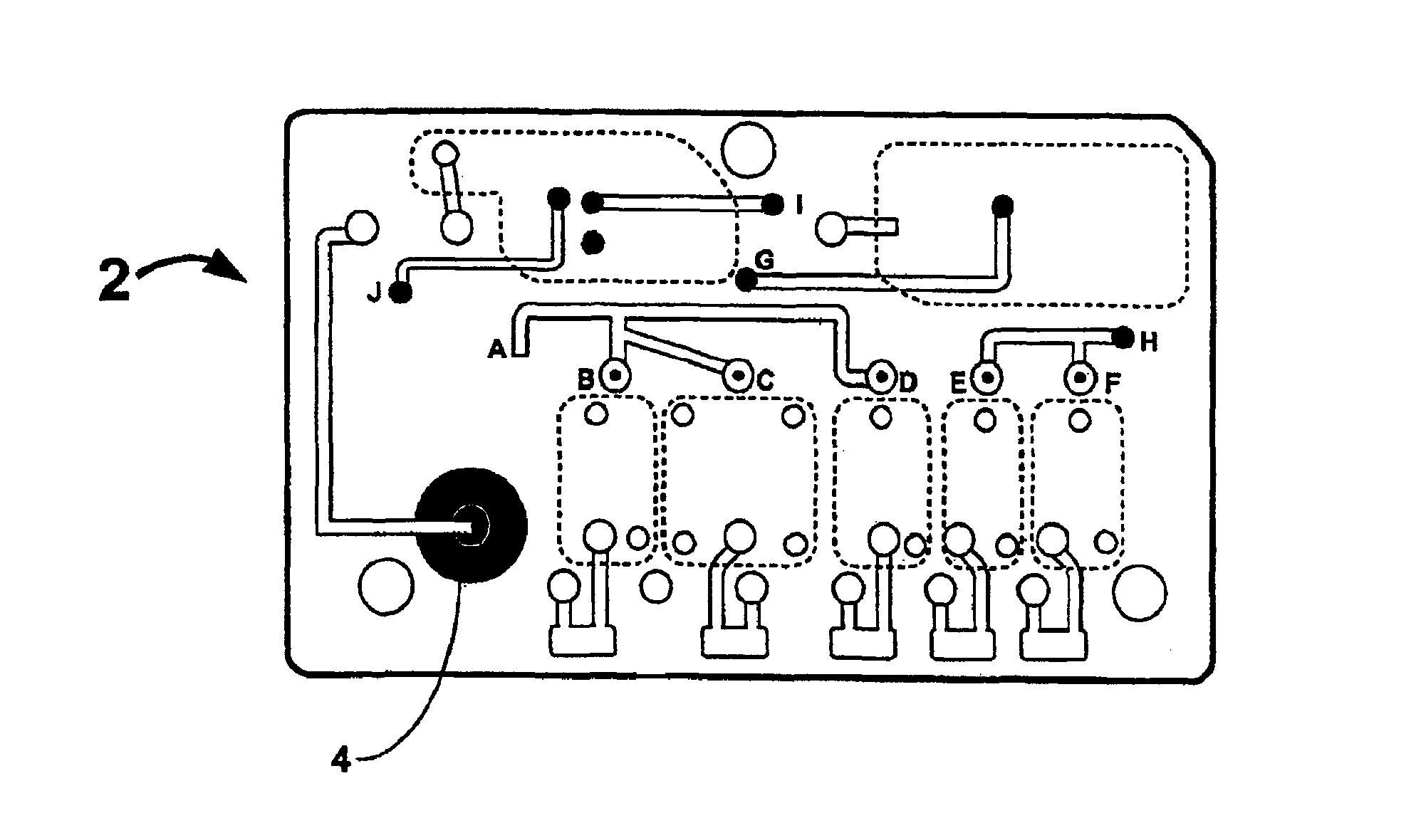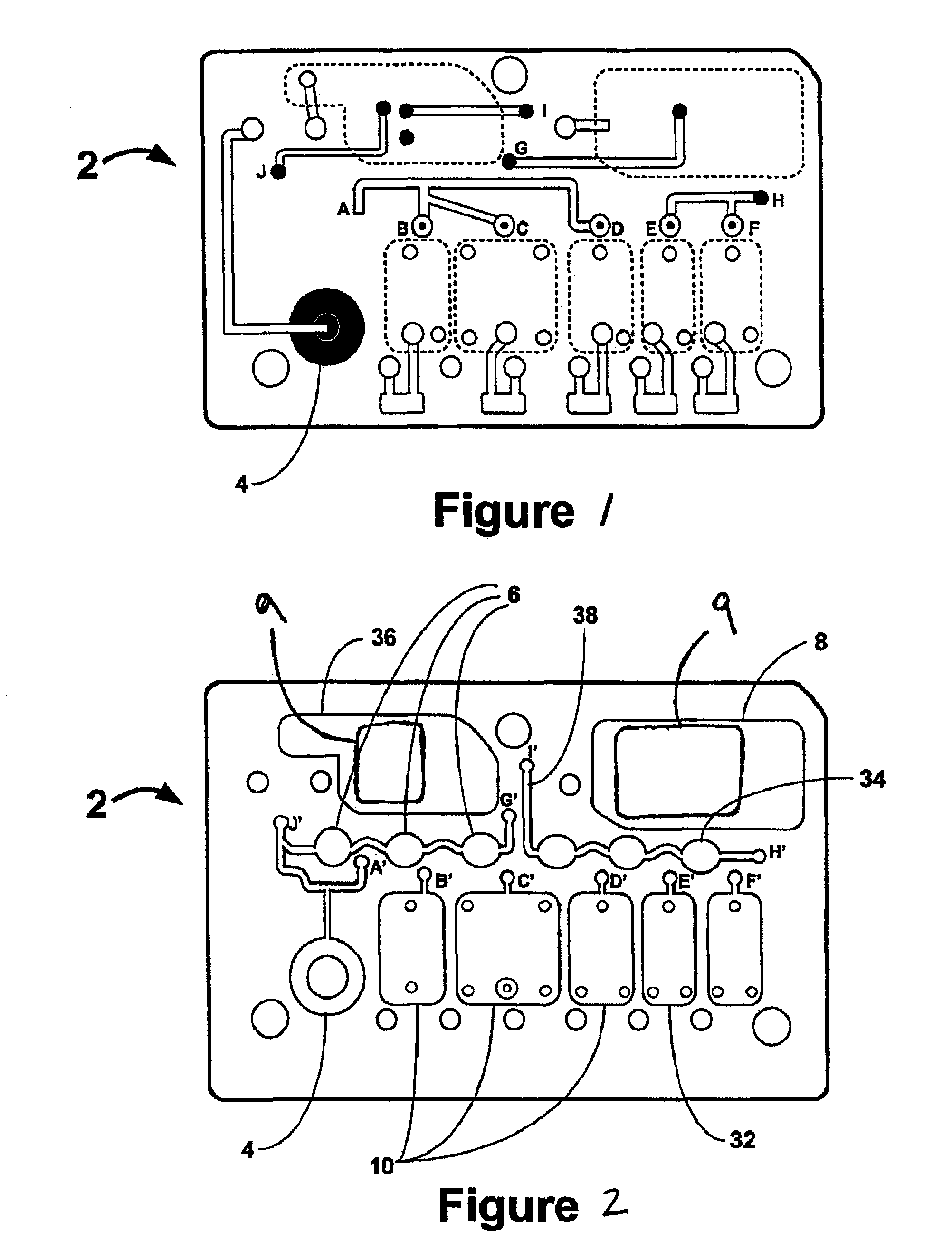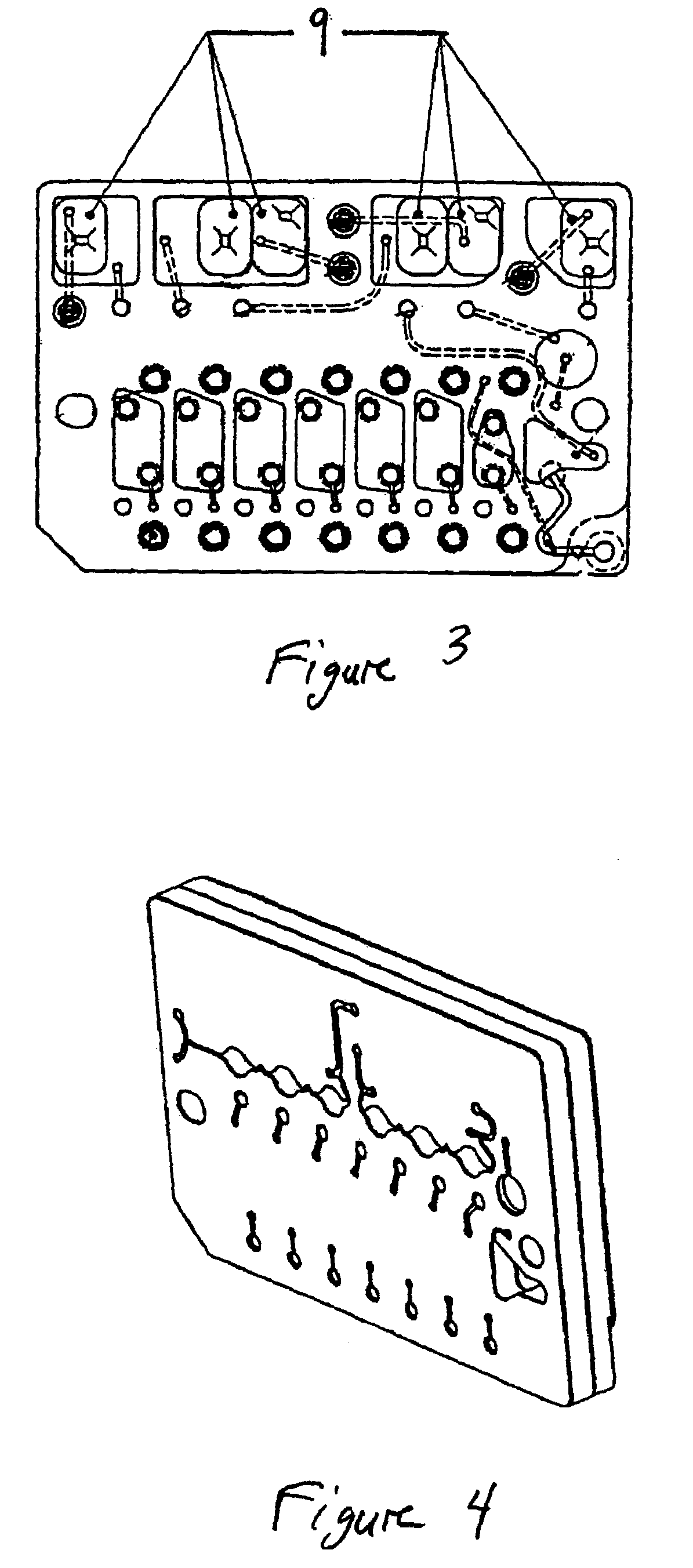Reducing optical interference in a fluidic device
a fluidic device and optical interference technology, applied in the field of reducing optical interference in fluidic devices, can solve the problems of unsatisfactory elimination of interference and undesired interference signals, and achieve the effect of reducing interference of optical signals
- Summary
- Abstract
- Description
- Claims
- Application Information
AI Technical Summary
Benefits of technology
Problems solved by technology
Method used
Image
Examples
example
[0105]A 1×0.5 inch piece of Whatman #32 glass fiber mat (item 10 372 968) was impregnated with 50 uL of 15% w / v 4-amino-1,1-azobenzene-3,4-disulfonic acid (0.4 M) in water then dried in a “dry box”.
[0106]In assays using alkaline-phosphatase (from bovine intestine)-labeled reagents (APase coupled to haptens or to antibodies at concentrations of up to about 10 ug / mL in a dilute tris buffer) and either Lumigen's Lumiphos™ 530, or KPL Phosphoglow™ AP substrates (both are dioxetanes and have an esterified phosphate residue on which the enzyme acts) used as supplied by the vendors (100 uM in dioxetane), the result was about 200 uL of enzyme and 200 uL of substrate in the waste chamber, thus exposed to the adsorbent material.
[0107]After an initial glow rate of 38,550 counts / second (observed by placing the fluidic device in a Molecular Devices M5 luminometer such that the waste chamber was being interrogated), the intensity dropped to about 100 counts / second within a few seconds after addin...
PUM
| Property | Measurement | Unit |
|---|---|---|
| volume fraction | aaaaa | aaaaa |
| concentrations | aaaaa | aaaaa |
| optical | aaaaa | aaaaa |
Abstract
Description
Claims
Application Information
 Login to View More
Login to View More - R&D
- Intellectual Property
- Life Sciences
- Materials
- Tech Scout
- Unparalleled Data Quality
- Higher Quality Content
- 60% Fewer Hallucinations
Browse by: Latest US Patents, China's latest patents, Technical Efficacy Thesaurus, Application Domain, Technology Topic, Popular Technical Reports.
© 2025 PatSnap. All rights reserved.Legal|Privacy policy|Modern Slavery Act Transparency Statement|Sitemap|About US| Contact US: help@patsnap.com



